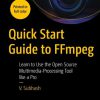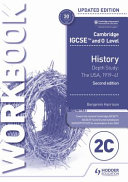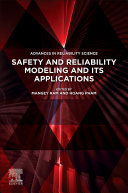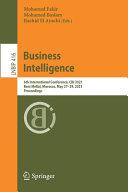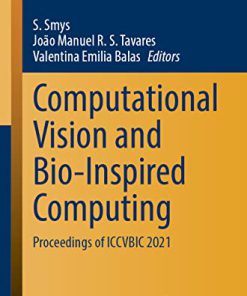Nature-Inspired Computing Paradigms in Systems: Reliability, Availability, Maintainability, Safety and Cost (RAMS+C) and Prognostics and Health Management (PHM) 1st Edition by Mohamed Arezki Mellal, Michael G. Pecht 9780128237502 0128237503
$50.00 Original price was: $50.00.$25.00Current price is: $25.00.
Nature-Inspired Computing Paradigms in Systems: Reliability, Availability, Maintainability, Safety and Cost (RAMS+C) and Prognostics and Health Management (PHM) 1st Edition Mohamed Arezki Mellal And Michael G. Pecht – Ebook Instant Download/Delivery ISBN(s): 9780128237502, 0128237503
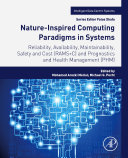
Product details:
- ISBN 10: 0128237503
- ISBN 13: 9780128237502
- Author: Mohamed Arezki Mellal, Michael G. Pecht
Nature-Inspired Computing Paradigms in Systems
Reliability, Availability, Maintainability, Safety and Cost (RAMS+C) and Prognostics and Health Management (PHM)
Nature-Inspired Computing Paradigms in Systems: Reliability, Availability, Maintainability, Safety and Cost (RAMS+C) and Prognostics and Health Management (PHM) covers several areas that include bioinspired techniques and optimization approaches for system dependability.
The book addresses the issue of integration and interaction of the bioinspired techniques in system dependability computing so that intelligent decisions, design, and architectures can be supported. It brings together these emerging areas under the umbrella of bio- and nature-inspired computational intelligence.
The primary audience of this book includes experts and developers who want to deepen their understanding of bioinspired computing in basic theory, algorithms, and applications. The book is also intended to be used as a textbook for masters and doctoral students who want to enhance their knowledge and understanding of the role of bioinspired techniques in system dependability.
- Provides the latest review
- Covers various nature-inspired techniques applied to RAMS+C and PHM problems
- Includes techniques applied to new applications
Table contents:
Chapter 1: Reliability optimization of power plant safety system using grey wolf optimizer and shuffled frog-leaping algorithm
Abstract
1: Introduction
2: Literature review
3: Problem description
4: Grey wolf optimizer
5: Shuffled frog-leaping algorithm
6: Results and discussion
7: Conclusions
Chapter 2: Design optimization of a car side safety system by particle swarm optimization and grey wolf optimizer
Abstract
1: Introduction
2: Design optimization of a car side safety system
3: Particle swarm optimization
4: Grey wolf optimizer
5: Results and discussion
6: Conclusions
Chapter 3: Genetic algorithms: Principles and application in RAMS
Abstract
1: Introduction
2: GA construction
3: Stop condition
4: GA applications
5: Industry 4.0 and optimization
6: Advantages and disadvantages of the GA
7: Conclusion
Chapter 4: Evolutionary optimization for resilience-based planning for power distribution networks
Abstract
1: Introduction
2: Problem description and formulation
3: Solution methodology
4: Results
5: Conclusions
Chapter 5: Application of nature-inspired computing paradigms in optimal design of structural engineering problems—a review
Abstract
1: Introduction
2: Nature-inspired algorithms
3: Nature-inspired metaheuristics in optimal design of structural engineering problems
4: Discussion
5: Conclusions
Chapter 6: A data-driven model for fire safety strategies assessment using artificial neural networks and genetic algorithms
Abstract
Acknowledgments
1: Introduction
2: Methodology
3: Results and discussions
4: Conclusions
Chapter 7: Application of artificial neural networks in polymer electrolyte membrane fuel cell system prognostics
Abstract
1: Introduction
2: Description of fuel cell test bench and experimental data
3: A hybrid approach for PEMFC prognosis
4: Effectiveness of proposed hybrid approach in PEMFC predictions
5: Input parameter optimization using correlation-based analysis
6: Conclusion
Chapter 8: Reliability redundancy allocation problems under fuzziness using genetic algorithm and dual-connection numbers
Abstract
1: Introduction
2: Prerequisite mathematics
3: Problem formulation: Reliability redundancy allocation problem (RRAP)
4: Solution procedure: Genetic algorithm-based constrained handling approach
5: Numerical example
6: Concluding remarks
People also search:
nature-inspired computing paradigms in systems
nature-inspired computing
bio-inspired computing
paradigm shift in natural sciences
quantum computing paradigm
You may also like…
Politics & Philosophy - Government & Politics
Health and Safety in Emergency Management and Response 1st Edition Dana L. Stahl
Education Studies & Teaching - Studying & Test Preparation
Business & Economics - Management & Leadership
Engineering - Energy & Power Resources
Fiction - Literary Fiction
29 Single and Nigerian INCOMPLETE First Edition Naijasinglegirl
Computers - Computer Science
Engineering - Energy & Power Resources
Computers - Professionals
Uncategorized
System Safety, Maintainability, and Maintenance for Engineers 1st Edition B.S. Dhillon


